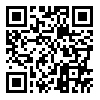مجله رویش روانشناسی از دادن گواهیهای کاغذی معذور است. لطفا تقاضا نکنید. همه گواهی ها در صفحه شخصی کاربران موجود است.
year 13, Issue 4 (summer 2024 2024)
Rooyesh 2024, 13(4): 21-30 |
Back to browse issues page
Download citation:
BibTeX | RIS | EndNote | Medlars | ProCite | Reference Manager | RefWorks
Send citation to:



BibTeX | RIS | EndNote | Medlars | ProCite | Reference Manager | RefWorks
Send citation to:
Hashemi T, Bayrami M, Nozari E. (2024). The mediating role of shame in the relationship between parenting styles and narcissistic personality symptoms in Students of university. Rooyesh. 13(4), 21-30.
URL: http://frooyesh.ir/article-1-4894-en.html
URL: http://frooyesh.ir/article-1-4894-en.html
1- Professor, Department of Psychology, Faculty of Educational sciences and psychology, University of Tabriz, Tabriz, Iran. , tourajhashemi@yahoo.com
2- Professor, Department of Psychology, Faculty of Educational science and psychology, University of Tabriz, Tabriz, Iran.
3- Ph.D Student of General psychology, Department of psychology, Faculty of Educational Science and Psychology, University of Tabriz, Tabriz, Iran.
2- Professor, Department of Psychology, Faculty of Educational science and psychology, University of Tabriz, Tabriz, Iran.
3- Ph.D Student of General psychology, Department of psychology, Faculty of Educational Science and Psychology, University of Tabriz, Tabriz, Iran.
Abstract: (1297 Views)
The purpose of the present study was to investigate the mediating role of shame in the relationship between parenting styles and narcissistic personality symptoms in Students at university. The method of this study was descriptive-correlational using the structural equation modeling method. The statistical population consisted of students of Tabriz University in the academic year 2022-2023. 300 people were selected as a sample using the cluster sampling method. The research tools included the Narcissistic Personality Questionnaire-16 (NPI-16) by Ames et al. (2006), the Parental Authority Questionnaire (PAQ) by Bury (1991), and the Internalized Shame Scale (ISS) by Cook (1993). Structural equation analysis was used to analyze the data. The results showed the optimal fit of the research model. The results showed that permissive parenting (P=0.01), autocratic parenting (P=0.004), and shame (P=0.004) have a significant direct effect on narcissistic personality and permissive (p=0.01) and authoritative (p=0.003) parenting also have a significant direct effect on shame and only the direct effect of authoritarian parenting on Shame was not significant (P<0.05). Permissive (P=0.005) and authoritative (P=0.002) parenting had a significant indirect effect on narcissistic personality, but authoritative parenting did not show a significant indirect effect (P>0.05). These results show that shame has a significant mediating role in the relationship between permissive and authoritative parenting with symptoms of narcissistic personality disorder in university students.
Type of Article: Research |
Subject:
Clinical Psychology
Received: 2023/10/10 | Accepted: 2023/12/20 | ePublished: 2024/07/28
Received: 2023/10/10 | Accepted: 2023/12/20 | ePublished: 2024/07/28
Send email to the article author
| Rights and permissions | |
 |
This work is licensed under a Creative Commons Attribution-NonCommercial 4.0 International License. |






